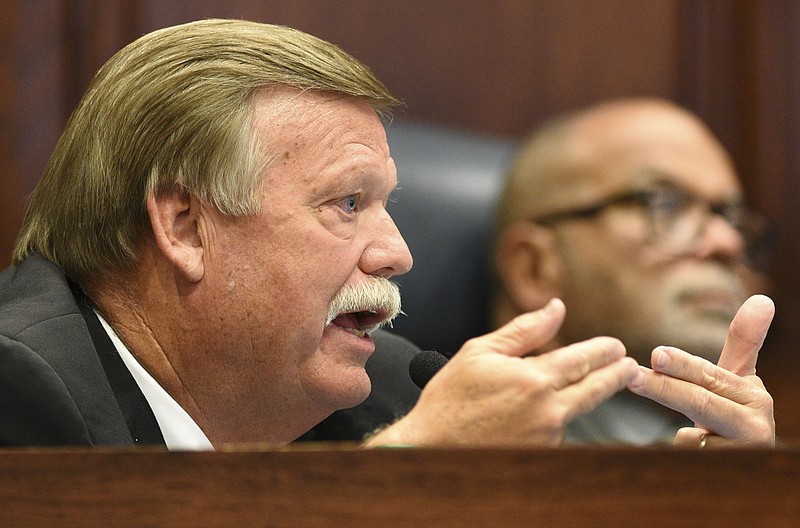It's a good "first step."
Ever since Hamilton County Mayor Jim Coppinger announced last Tuesday his desire to increase tax bills on most properties in the county, I've heard - and seen across social media - numerous supporters of the tax hike make similar "first step" comments.
I should note that every single one of those comments that I've been privy to have been made with regard to the public school system.
And considering the $100 million windfall the tax increase provides for our schools is still well short of what some say is actually needed, we can safely assume this "first step" will be followed by more steps (read: tax jumps) in coming years.
It's still quite foggy, though, what exactly the $100 million will cover. Sure, we've been told the monies will be directed to new school construction and facility repairs. But try to drill down any further on that, and well, what does that actually mean?
Where will the new schools be? Which schools get fresh roofs? Which ones will get updated athletic facilities? Are dollars going to be directed to a handful of the school system's biggest needs, or are we going to spread those resources out from East Hamilton to Lookout Valley, and Howard to Sale Creek?
Also, and here's a big question. Coppinger's tax jump will (likely) pay for a new sewage treatment facility to aid more development in northeast Hamilton County. This spending will encourage, by some estimates, 10,000 new residences by 2021. Those homes will house thousands of families, many with kids. Where will those children be educated? In existing schools or new ones?
Either way, it will cost more money to accommodate them. Will the current tax rate be enough to support those needs? Or are the dollars allocated by this tax increase enabling a more problematic financial scenario for later administrations to figure out?
Hopefully, it's the former, since taxpayers may not be as receptive to the next tax bump, whenever it's proposed. Right now, we're able to discuss the double whammy of city (Chattanooga) and county (Hamilton) property tax hikes in glossy, theoretical terms. They're "investments" and "opportunities."
We're moving forward, people.
Yet when residents start experiencing those new, larger tax bills, we'll quickly move from aspirational prose to individual budgetary belt-tightening. For some of us, it won't matter all that much. For others, however, the pinch in the pocketbook will be quite sharp.
The Metro Ideas Project created a tax calculator to help locals figure out what their adjusted tax bills could be. According to its estimates, my wife and I will be paying a few hundred extra bucks per year.
That's not the end of the world, but when it comes time for check-writing, that dollar amount is the rough equivalent of three trips to the grocery for our household, or three to four months of internet service, or two months of gas for our cars, or a handful of annual donations to some of our favorite local nonprofits.
Which ones(s) should we cut? That's a question thousands of Chattanooga area taxpayers will soon be making.
With that, perhaps a good idea would be for the school system to publicly map out specific education-benefitting benchmarks and key performance indicators for what they'll be doing with the $100 million that central office will soon be receiving from taxpayers. Doing so, we can all track progress together and celebrate any wins that might be achieved.
That way, we can all see what our "investments" are yielding, and when it inevitably comes time for the next tax increase, people won't have to guess where the last $100 million went.
Contact David Allen Martin at davidallenmartin423@gmail.com and follow him on Twitter @DMart423.
